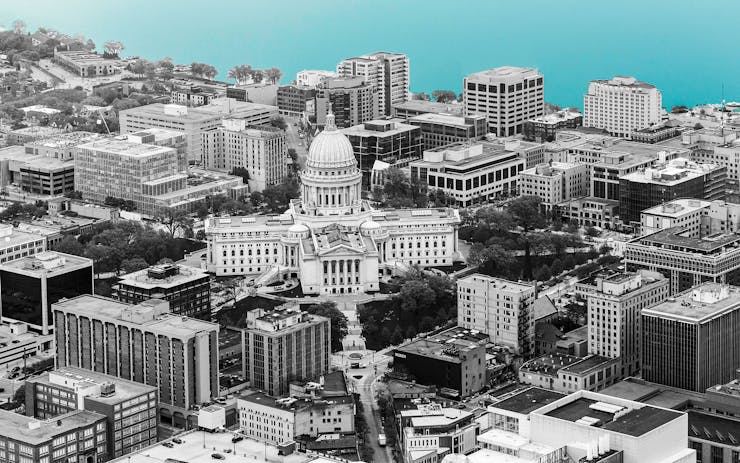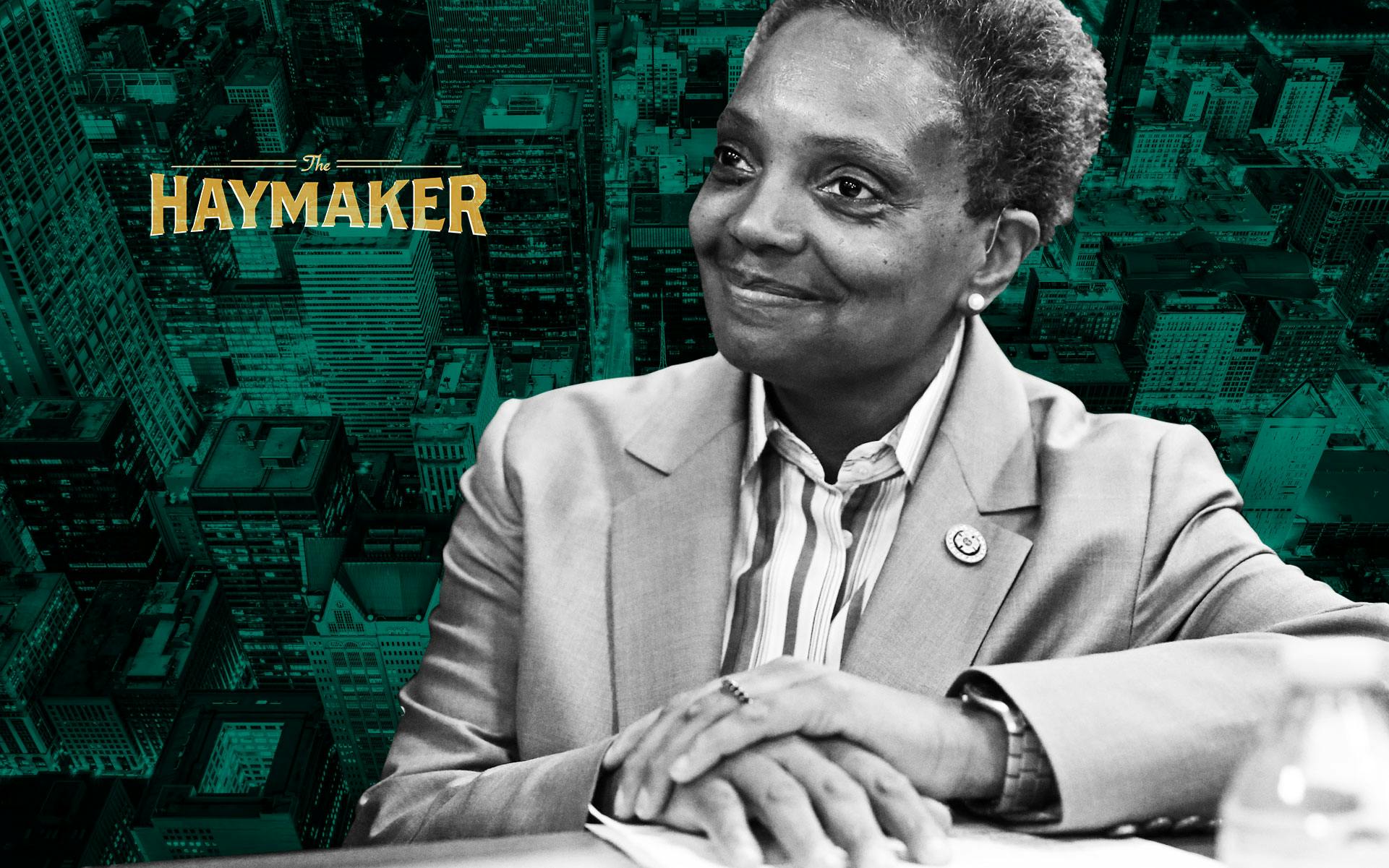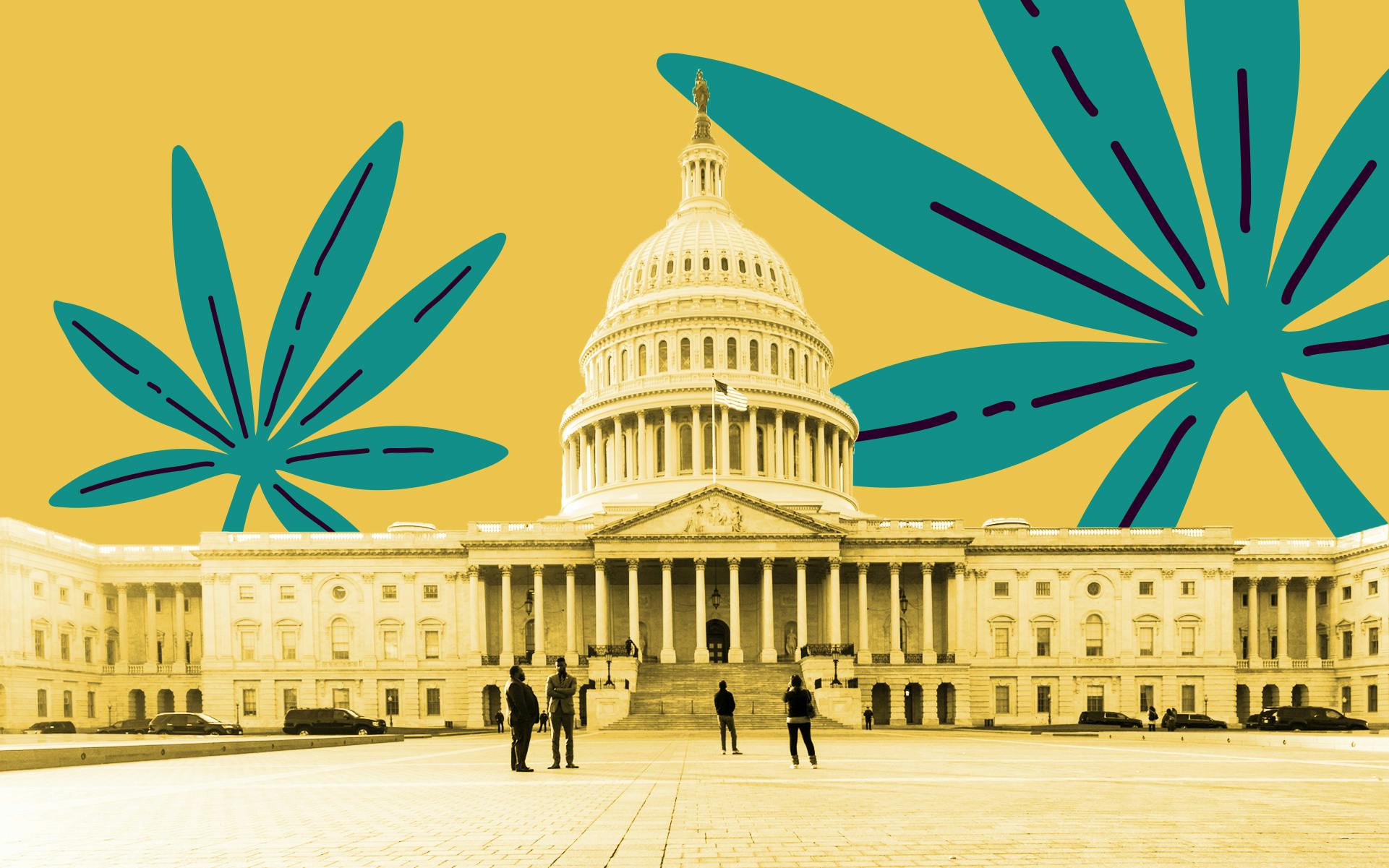CHICAGO (AP) — The historic hub of black culture on the south side of Chicago called Bronzeville bears the marks of disinvestment common to many of the city’s black-majority neighborhoods.
Along the expansive South Dr. Martin Luther King Jr. Drive, lines of greystones alternate in and out of disrepair, and many of the district’s blocks that were once home to vibrant institutions — earning it the name “Black Metropolis” — are now mottled with overgrown, vacant lots. A census tract within the area is one of the poorest in the city.
But for Seke Ballard and Seun Adedeji, the area is ripe for reinvestment because — not in spite — of it being disadvantaged.
If Wisconsin were to legalize medical cannabis, there would be a net $1.1 billion positive effect, bringing in fees and health benefits while potentially reducing opioid overdoses, addiction and traffic fatalities.
In late June, Illinois Gov. J.B. Pritzker signed a law legalizing the recreational use of cannabis that lowers the barrier of entry to the industry for places like Bronzeville and its residents who have been disproportionately harmed by past cannabis laws and poverty. It takes effect Jan. 1.
Though blacks nationwide use marijuana at similar rates to whites, they are much more likely to face criminal penalties for using it. In Wisconsin, blacks are four times as likely as whites to be arrested for pot possession, where all uses are illegal.
Ballard and Adedeji envision a Bronzeville, a Chicago and an Illinois revitalized by a cannabis industry that is operated by people reflecting the diversity of the state and creating an ecosystem of businesses — including security camera installers, construction contractors and restaurants — to support it.
“It’s a snowball effect, and this is a once-in-a-generation opportunity for people who come from communities that look exactly like this community that we’re in now to really use that spark to jumpstart economic development in those areas,” says Ballard, a Harvard-educated businessman and founder of Good Tree Capital, a firm that lends money to small cannabis businesses.
With 11 states and Washington, D.C., having legalized cannabis for adult recreational use and 33 states plus D.C. with medical cannabis laws, marijuana has quickly grown into an $8 billion industry that shows no signs of slowing down. Wisconsin is debating legalization — but Republicans who run the Legislature are not fully on board.
Democratic Gov. Tony Evers has proposed legalizing medical marijuana. Evers also wants to decriminalize possession of small amounts of marijuana.
Nationwide, by 2022, legal cannabis revenue is projected to nearly triple from current levels into a $23 billion industry, according to the Arcview Group, a cannabis-focused market research firm.
If Wisconsin were to legalize cannabis for medical uses, there would be a net $1.1 billion positive effect, bringing in additional fees and health benefits while potentially reducing opioid overdoses, addiction and traffic fatalities over five years, according to a cost-benefit analysis by the University of Wisconsin-Madison’s La Follette School of Public Affairs. If the state were to decriminalize cannabis, it would save an additional $30 million in decreased criminal justice costs.
The study did not project potential state tax revenue, but the Legislature’s leading proponent of legalization, state Rep. Melissa Sargent, D-Madison, says such a move could bring in $138 million a year.
The marijuana industry’s continued growth is almost unprecedented. Tom Adams, editor in chief of Arcview, says the only consumer industries to grow as largely and as quickly as cannabis in recent years are broadband internet in the 2000s and cable television in the 1990s.
Owing to marijuana’s continued federal ban, the most critical element for entry is a state-awarded license.
When Florida voters approved Amendment 2 in 2016, legalizing the use of medical marijuana for those with debilitating conditions, the state implemented a merit-based application system, including whether a company had a medical director and its experience with cultivation.
Initially, companies could apply for one of five integrated licenses to be awarded for the entire state. Each “vertical” cannabis license — meaning the one license required for the company to own and operate the entire chain of production from cultivation to retail — allowed the winning company to open up to 25 dispensaries.
With the medical market projected to grow in Florida to $956 million by 2022, a scramble ensued for these five coveted licenses. Since then, the number of licensed operators has grown to 22, an expansion spurred in part by a lawsuit filed against the state.
Although states like Florida and New York have limited the number of licenses and required vertical integration, the merit-based application process effectively gave an advantage to large, well-funded corporations, says Andrew Livingston, an economic and policy analyst for the nation’s largest cannabis-focused law firm, Vicente Sederberg LLC, based in Denver.
“If it comes down to a competition between who has the best team and who has the most capital, the most well-heeled multi-state operators are going to win that race,” Livingston says.
Adedji owns a cannabis business in Oregon and is opening three retail stores in Massachusetts. His first foray into cannabis was as a middle schooler in Illinois; he was arrested for possession in 7th grade.
It took Adedji three years to open the business in Oregon. He says the state required him to lease property before he could sell any products. By the time he received his license, Adedji could barely afford to stock the shelves.
Ballard considers Illinois’ legislation the “gold standard” in large part because it lowers the capital barrier that Adedji ran into.
The law includes a cannabis business development fund of roughly $30 million to provide low-interest loans for those directly impacted by past cannabis laws. These “social equity” applicants include people or their families who have been arrested or convicted of a cannabis-related offense. Adedji says his juvenile arrest qualifies him as a social equity applicant.
Illinois’ medical cannabis program requires at least $400,000 in liquid assets and $50,000 in escrow for a dispensary.
“So when you think about who the hell has that kind of money, you get a pretty clear idea of who can clear those barriers,” Ballard says. “But in the recreational legislation, they’ve done away with all of that.”
Under recreational legalization, the cost of entry is as low as $5,000 with a social equity discount. With the state’s development fund, Ballard hopes that the reduced cost will combine to lower the barrier of entry.
“People will have an easier time getting into the industry and the owners (will) reflect the diversity of the state rather than deep pocketed people who can afford really expensive licenses.”
In Sargent’s latest bill, cannabis business licenses in Wisconsin would be split into five categories — producer, processor, distributor, retailer and microbusiness — but, as in most states, a business could hold multiple licenses. The bill does not include provisions for social equity applicants or disproportionately impacted areas but does call for discounted licenses fees for small businesses.
Less than a fifth of marijuana business owners identify as racial minorities, and 4.3% are black.
A merit-based application process would rank applicants across several dimensions, including environmental protection and ability to provide stable, family-supporting jobs to local residents. Any businesses with 20 or more employees would also be required to enter a “labor peace agreement,” which would prohibit employees from strikes and picketing and the applicant from disrupting any labor organizing efforts.
In Florida, not only did limiting licenses squeeze out smaller businesses from participating in the market, but requiring licensees to build out a cannabis grow, manufacturing facility and storefront required a massive capital investment in the first place, Livingston says.
It also boosted even higher the valuations of the companies that won the licenses. GrowHealthy Holdings’ license eventually sold for $48 million, even before the company had seen a “dime in revenue,” says Kris Krane, co-founder of 4Front, a multi-state cannabis consultant and operator headquartered in Phoenix.
Too many licenses can create its own problems.
When voters in Oregon voted to legalize adult-use cannabis in 2014, the state liberally awarded licenses, requiring a maximum fee of $6,000. By comparison, New York requires more than $200,000 in licensing fees.
Since cannabis was legalized, so many people have entered the industry that there is a licensed cultivation operation for every 19 cannabis users, according to the Oregon-Idaho High Intensity Drug Trafficking Area, a coalition of local, state and federal agencies. The overproduction of cannabis triggered a drop in wholesale prices and created an oversupply. That bled into 37 other states through black markets, the drug task force says.
At the federal level, banking and tax laws also make it hard for smaller businesses to exist in the cannabis market, Krane says. Although the number of banks that are willing to interact with the cannabis industry is increasing, according to the U.S. Treasury Department, there is still a barrier between entrepreneurs and banking.
Without these funds, small businesses are largely funded by the entrepreneur’s friends and family, Livingston says, which provides an advantage to whites, who benefit from a massive racial wealth gap. According to the Census Bureau’s Current Population Survey, for every $100 in white family wealth, black families have $5.04.
Less than a fifth of marijuana business owners identify as racial minorities, and 4.3% are black, according to a report from Marijuana Business Daily. Seventeen percent of executives in the industry are racial minorities, however — a larger proportion than U.S. businesses as a whole.
Cannabis entrepreneur Abbie Testaberg fears big businesses will come to dominate the state market if Wisconsin legalizes marijuana for medical or recreational uses. Testaberg and her husband, Jody, run three cannabis companies, including a hemp growing operation in western Wisconsin.
Testaberg hopes marijuana, if it is legalized, does not go the way of the dairy industry, in which family farms increasingly are squeezed out.
“If we enter the cannabis industry regulation the same way as where we’re currently at with big farm regulations, we’re going to create the same monster,” Testaberg says.
The nonprofit news outlet Wisconsin Watch provided this article to The Associated Press through a collaboration with Institute for Nonprofit News.







